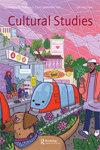Modern African humans effecting Atlantic middle passes
IF 1.6
3区 社会学
Q1 ANTHROPOLOGY
引用次数: 0
Abstract
ABSTRACT This essay challenges the traditional focus of the Black Atlantic on Anglophone-dominant movement and culture by prioritizing Afro-Francophone discussion, through a philosophical contextualization of Fatou Diome’s Le Ventre de L’Atlantique in conversation with Aminata Traoré’s Le Viol de L’Imaginaire. The essay offers an exploration of fugitivity or exile from colonially structured material conditions and lived experiences of unfreedom in African contexts, notions present in both narratives. After presenting and analyzing a key element of the encounter between Western human beings and African human be-ings, it considers a central element of Diome’s novel, in counterpart with a central theme of Traoré’s text. It explores the idea that the type of fugitivity that transpires in Diome’s novel, and the kind of exile of which Traoré speaks, can be understood as, in part, a result of a salient feature of the relationality between human beings and human be-ings. In that Diome’s Salie and Traoré tell their communities what they know about the West and how Africans really fare there, they break through community lies and ignorance that aid and abet – but do not, at the root, cause – the complex situation of capture and captivation that coerce or seduce Africa’s youth into varying states of fugitivity or exile. Both propose reimaging and rebuilding Africa for Africans – an endeavour requiring that African youth remain in Africa.影响大西洋中路的现代非洲人
摘要本文通过对法图·迪奥姆的《大西洋之风》与阿米纳塔·特拉奥雷的《想象的小提琴》的对话,将非法语讨论置于首位,挑战了黑大西洋对英语主导运动和文化的传统关注。这篇文章从殖民结构的物质条件和非洲背景下的不自由生活经历中探索了逃亡或流亡,这两种叙事中都有这些概念。在介绍和分析了西方人类与非洲人类相遇的一个关键要素后,它认为迪奥姆小说的一个核心要素与特拉奥雷文本的一个中心主题是相对应的。它探讨了这样一种观点,即迪奥姆小说中出现的逃亡类型,以及特拉奥雷所说的那种流亡,在一定程度上可以理解为人与人之间关系的一个显著特征的结果。Diome的Salie和Traoré向他们的社区讲述了他们对西方的了解,以及非洲人在那里的真实处境,他们突破了社区的谎言和无知,这些谎言和无知帮助和教唆——但不是根本原因——复杂的被俘和被俘情况,迫使或引诱非洲青年进入不同的逃亡或流亡状态。双方都建议为非洲人重新构想和重建非洲——这一努力要求非洲青年留在非洲。
本文章由计算机程序翻译,如有差异,请以英文原文为准。
求助全文
约1分钟内获得全文
求助全文
来源期刊

Cultural Studies
Multiple-
CiteScore
3.50
自引率
6.70%
发文量
0
期刊介绍:
Cultural Studies is an international journal which explores the relation between cultural practices, everyday life, material, economic, political, geographical and historical contexts. It fosters more open analytic, critical and political conversations by encouraging people to push the dialogue into fresh, uncharted territory. It also aims to intervene in the processes by which the existing techniques, institutions and structures of power are reproduced, resisted and transformed. Cultural Studies understands the term "culture" inclusively rather than exclusively, and publishes essays which encourage significant intellectual and political experimentation, intervention and dialogue.
 求助内容:
求助内容: 应助结果提醒方式:
应助结果提醒方式:


